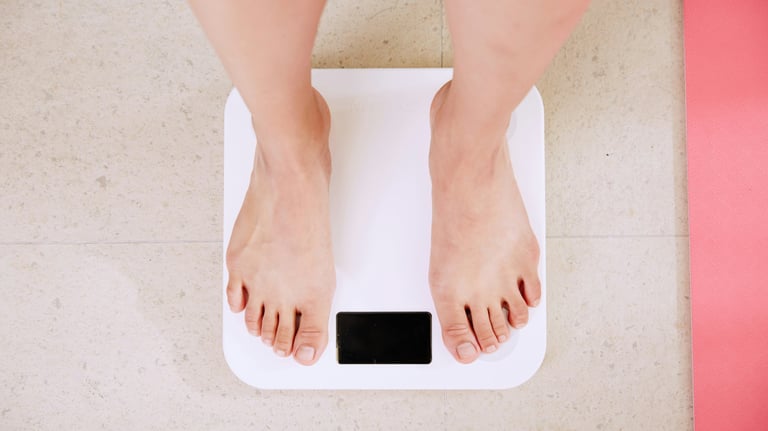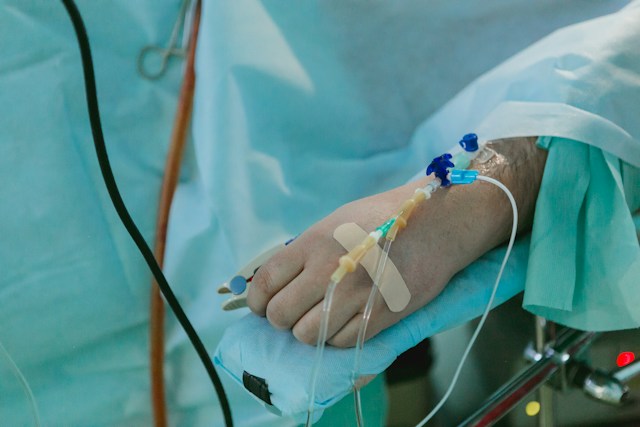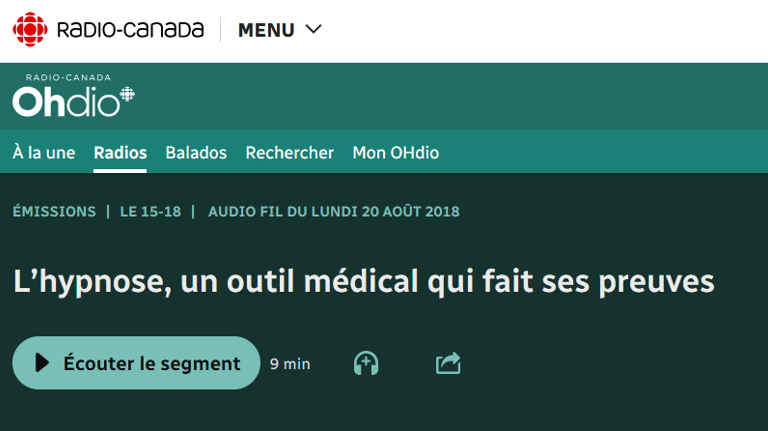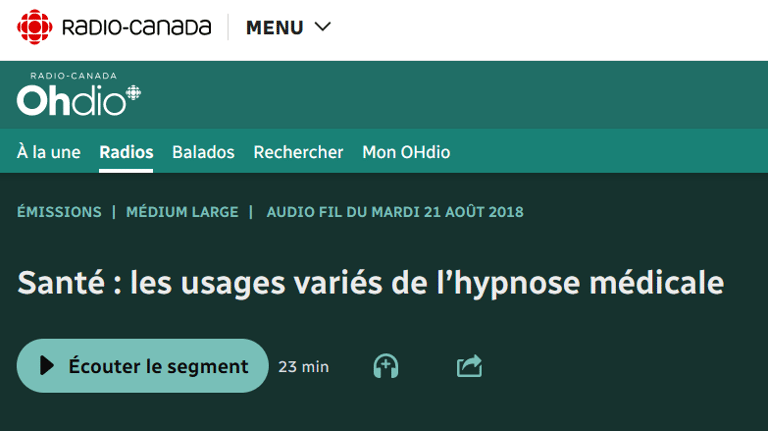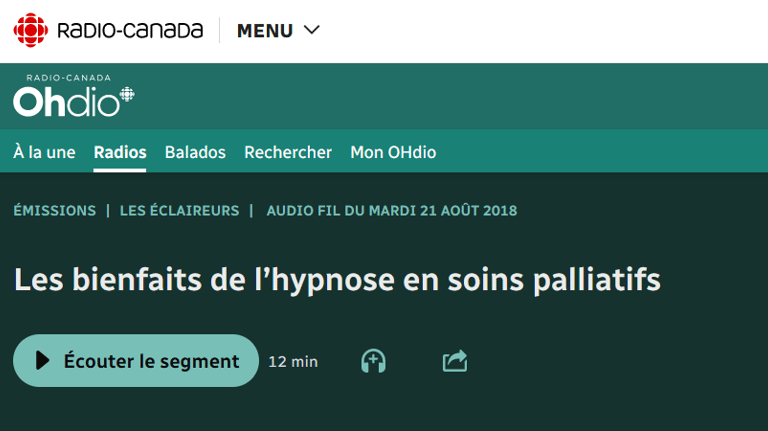La science de l'hypnose
L’étude scientifique de l’hypnose et de l’hypnothérapie continue de révéler des résultats fascinants. Voici quelques études qui pourront vous éclairer !
***Noter que les articles sont dans la langue de publication initiale.
Hypnotic approaches for chronic pain management: Clinical implications of recent research findings
Jensen, M. P., & Patterson, D. R. (2014). American Psychologist, 69(2), 167–177. https://doi.org/10.1037/a0035644
The empirical support for hypnosis for chronic pain management has flourished over the past two decades. Clinical trials show that hypnosis is effective for reducing chronic pain, although outcomes vary between individuals. The findings from these clinical trials also show that hypnotic treatments have a number of positive effects beyond pain control. Neurophysiological studies reveal that hypnotic analgesia has clear effects on brain and spinal-cord functioning that differ as a function of the specific hypnotic suggestions made, providing further evidence for the specific effects of hypnosis. The research results have important implications for how clinicians can help their clients experience maximum benefits from hypnosis and treatments that include hypnotic components. (APA PsycInfo Database Record (c) 2016 APA, all rights reserved)
Application of alpha/theta neurofeedback and heart rate variability training to young contemporary dancers: State anxiety and creativity
J. H. Gruzelier, T. Thompson, E. Redding, R. Brandt, T. Steffert. (2013). International Journal of Psychophysiology, Volume 93, Issue 1, July 2014, Pages 105-111. https://doi.org/10.1016/j.ijpsycho.2013.05.004
As one in a series on the impact of EEG-neurofeedback in the performing arts, we set out to replicate a previous dance study in which alpha/theta (A/T) neurofeedback and heart rate variability (HRV) biofeedback enhanced performance in competitive ballroom dancers compared with controls. First year contemporary dance conservatoire students were randomised to the same two psychophysiological interventions or a choreology instruction comparison group or a no-training control group. While there was demonstrable neurofeedback learning, there was no impact of the three interventions on dance performance as assessed by four experts. However, HRV training reduced anxiety and the reduction correlated with improved technique and artistry in performance; the anxiety scale items focussed on autonomic functions, especially cardiovascular activity. In line with the putative impact of hypnogogic training on creativity A/T training increased cognitive creativity with the test of unusual uses, but not insight problems. Methodological and theoretical implications are considered.
Hypnosis in the treatment of anxiety- and stress-related disorders
D. Corydon Hammond (2010). Expert Review of Neurotherapeutics, 10:2, 263-273. https://doi.org/10.1586/ern.09.140
Self-hypnosis training represents a rapid, cost-effective, nonaddictive and safe alternative to medication for the treatment of anxiety-related conditions. Here we provide a review of the experimental literature on the use of self-hypnosis in the treatment of anxiety and stress-related disorders, including anxiety associated with cancer, surgery, burns and medical/dental procedures. An overview of research is also provided with regard to self-hypnotic treatment of anxiety-related disorders, such as tension headaches, migraines and irritable bowel syndrome. The tremendous volume of research provides compelling evidence that hypnosis is an efficacious treatment for state anxiety (e.g., prior to tests, surgery and medical procedures) and anxiety-related disorders, such as headaches and irritable bowel syndrome. Although six studies demonstrate changes in trait anxiety, this review recommends that further randomized controlled outcome studies are needed on the hypnotic treatment of generalized anxiety disorder and in documenting changes in trait anxiety. Recommendations are made for selecting clinical referral sources.
Hypnosis as an adjunct to cognitive-behavioral psychotherapy: A meta-analysis
Kirsch, I., Montgomery, G., & Sapirstein, G. (1995). Hypnosis as an adjunct to cognitive-behavioral psychotherapy: A meta-analysis. Journal of Consulting and Clinical Psychology, 63(2), 214–220. https://doi.org/10.1037/0022-006X.63.2.214
A meta-analysis was performed on 18 studies in which a cognitive–behavioral therapy was compared with the same therapy supplemented by hypnosis. The results indicated that the addition of hypnosis substantially enhanced treatment outcome, so that the average client receiving cognitive–behavioral hypnotherapy showed greater improvement than at least 70% of clients receiving nonhypnotic treatment. Effects seemed particularly pronounced for treatments of obesity, especially at long-term follow-up, indicating that unlike those in nonhypnotic treatment, clients to whom hypnotic inductions had been administered continued to lose weight after treatment ended. These results were particularly striking because of the few procedural differences between the hypnotic and nonhypnotic treatments. (APA PsycInfo Database Record (c) 2016 APA, all rights reserved)
Hypnosis Decreases Presurgical Distress in Excisional Breast Biopsy Patients
Schnur, Julie B. PhD, Bovbjerg, Dana H. PhD, David, Daniel PhD, Tatrow, Kristin PhD, Goldfarb, Alisan B. MD, Silverstein, Jeffrey H. MD, Weltz, Christina R. MD, Montgomery, Guy H. PhD.Anesthesia & Analgesia 106(2):p 440-444, February 2008. https://journals.lww.com/anesthesia-analgesia/fulltext/2008/02000/hypnosis_decreases_presurgical_distress_in.14.aspx
The present study demonstrated that patients who received a brief (15 min) hypnosis session before excisional breast biopsy experienced lower levels of presurgical distress than patients who received the same amount of professional attention but no active intervention. More specifically, patients who received hypnosis before their surgery were significantly less emotionally upset, less depressed, less anxious, and were significantly more relaxed before surgery (posthypnosis) than patients who were in the attention control condition. All effect sizes were in the large or medium-to-large range, and suggest that more than 75% of participants in the hypnosis group felt significantly better emotionally (less distressed and more relaxed) than control participants.
Hypnosis to manage distress related to medical procedures: a meta-analysis
Julie B. Schnur, Ilana Kafer, Carolyn Marcus, Guy H. Montgomery. First published: 21 August 2008. https://doi.org/10.1002/ch.364
This meta-analysis evaluates the effect of hypnosis in reducing emotional distress associated with medical procedures. PsycINFO and PubMed were searched from their inception through February 2008. Randomized controlled trials of hypnosis interventions, administered in the context of clinical medical procedures, with a distress outcome, were included in the meta-analysis (26 of 61 papers initially reviewed). Information on sample size, study methodology, participant age and outcomes were abstracted independently by 2 authors using a standardized form. Disagreements were resolved by consensus. Effects from the 26 trials were based on 2342 participants. Results indicated an overall large effect size (ES) of 0.88 (95% CI = 0.57–1.19) in favour of hypnosis. Effect sizes differed significantly (p < 0.01) according to age (children benefitted to a greater extent than adults) and method of hypnosis delivery, but did not differ based on the control condition used (standard care vs. attention control). Copyright © 2008 British Society of Experimental & Clinical Hypnosis. Published by John Wiley & Sons, Ltd.
L’hypnose, un outil médical qui fait ses preuves
Radio Canada OhDio. Émissions Le 15-18. Audio fil du lundi 20 août 2018. https://ici.radio-canada.ca/ohdio/premiere/emissions/le-15-18/segments/entrevue/83979/hypnose-medicale-sante
Santé : les usages variés de l’hypnose médicale
Radio Canada OhDio. Émissions. Audio fil du mardi 21 août 2018. https://ici.radio-canada.ca/ohdio/premiere/emissions/medium-large/segments/panel/83949/hypnose-medicale-utilites-insoupconnees-landry-rainville.
Les bienfaits de l’hypnose en soins palliatifs
Radio Canada OhDio. Émissions Les éclaireurs. Audio fil du mardi 21 août 2018. https://ici.radio-canada.ca/ohdio/premiere/emissions/les-eclaireurs/segments/entrevue/84084/soins-palliatifs-fin-vie-hypnose-temoignage-medecin






